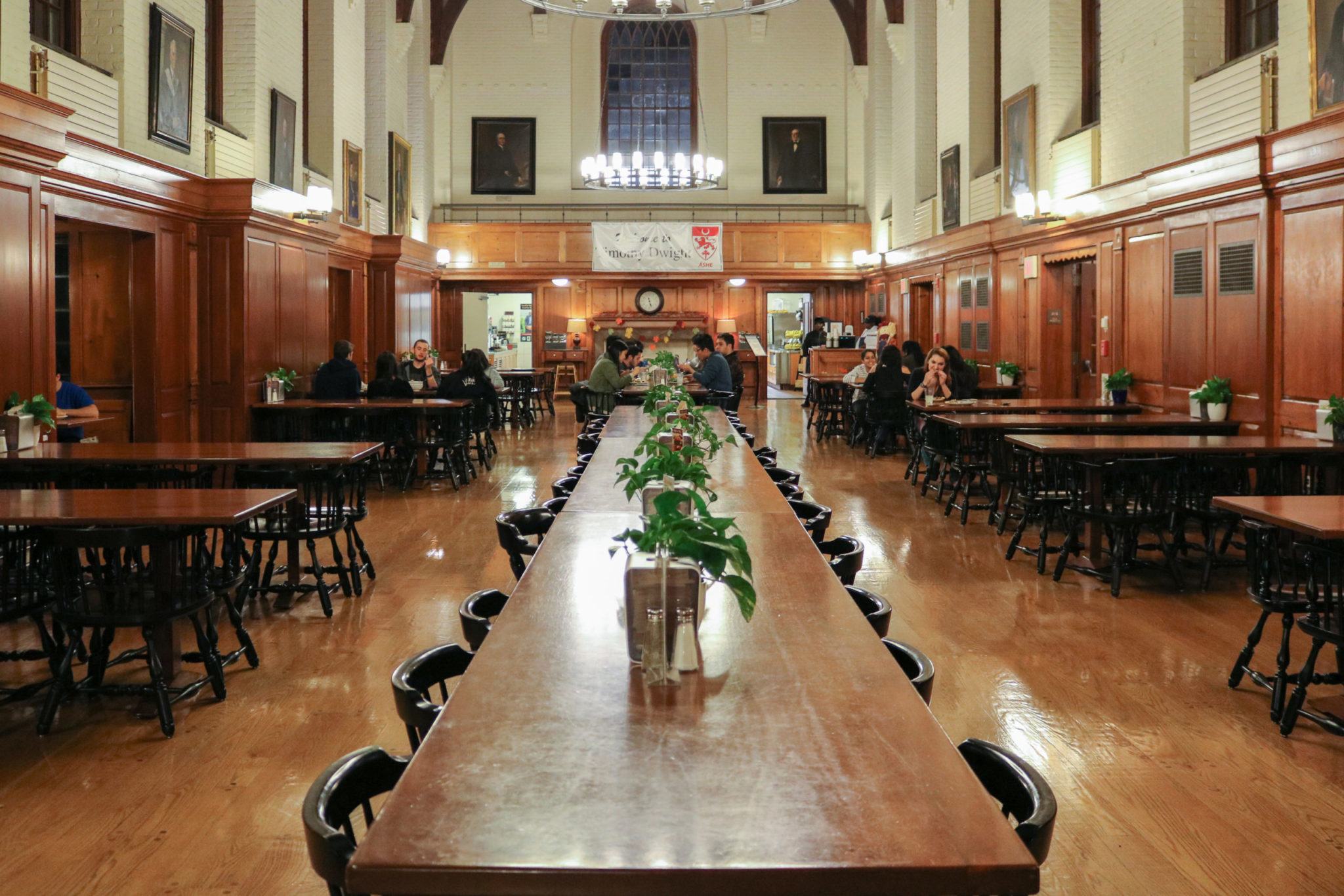Sick students decry lack of to-go boxes in dining halls
Yale Hospitality told the News this week that takeout box options are available to all sick students, regardless of exact illness. But 12 dining halls are currently distributing boxes only to those who test positive for COVID-19.

Asha Prihar
Twelve of Yale’s 14 residential college dining halls are now only providing to-go boxes to students who test positive for COVID-19.
Students told the News that the policy makes accessing meals while sick challenging — a particularly pressing issue for immunocompromised or low-income students.
“I appreciate the attentiveness that Yale Dining has to COVID, but I find it odd that they won’t give to-go boxes to students who have been contacted, or students who in general feel sick and want to stay in their rooms,” Evelyn Letona Robles ’25 wrote in an email to the News. “I don’t think the varying degrees of illness on campus are accommodated through the Yale Dining experience.”
According to Yale Hospitality, takeout box options are available for students. Senior Director of Yale Hospitality Robert Sullivan told the News that sick students may request to-go boxes from the dining hall manager or desk attendant, no matter what their illness. But this is not the case in all — or even most — dining halls.
On Wednesday, the News visited all 14 residential college dining halls, as well as Commons dining hall at the Schwarzman Center. Of these, only Jonathan Edwards, Silliman and Commons had boxes universally available; employees at the other 12 said they were only allowed to distribute boxes to people with COVID-19.
Employees at some dining halls, however, expressed flexibility with the policy, noting that if there was a significant reason — such as a class, meeting or other conflict — they could apply their own discretion and provide a takeout container. However, the current, general rule is that these boxes can only be given to students with COVID-19.
Sullivan noted that there is a 15-minute designated period before each meal time during which those who tested positive for COVID-19 can pick up their food. Students considered close contacts are required to wear masks and take their meals to-go, Sullivan said.
He also mentioned that Smart Meals, which can be ordered on the Yale Hospitality app ahead of time and picked up from a dining hall, are available to all students. But even this system has its kinks.
Letona Robles tested positive for COVID-19 earlier in the semester. While positive, she accessed her food by entering the dining hall during the 15-minute period prior to regularly scheduled meal times that Sullivan noted. Letona Robles sometimes had to wait longer than the allotted time because the food was not yet ready.
Letona Robles wrote that this “defeated the purpose” of her going to the dining hall early, as she then was in the same space as COVID-negative students despite knowing that she was positive and could potentially spread the virus.
Letona Robles noted that since testing negative, she has not been able to use to-go boxes — and neither have several friends of hers who have been contact traced.
Students like Joseph Elsayyid ’26 and Veronica Zimmer ’25 also expressed concern about the current policy. Both spoke to the News earlier this week about general challenges they experience while being sick, but not with COVID-19.
Zimmer contracted pneumonia last semester, and for her, to-go boxes were a necessary alternative to eating in-person at a dining hall.
The News interviewed eight students for this article. All eight expressed preference for to-go boxes over sit-down meals in the dining halls when they are sick.
“There are just some dinners where I was not up to eating in the dining hall, and I just needed to go back to my room,” Zimmer said. “So that was just helpful to get through my sickness.”
This situation poses added challenges for immunocompromised or otherwise high-risk students, faculty and other Yale affiliates who eat in dining halls. For some, the possibility of contracting COVID-19 — or another illness — from a highly-packed environment, especially a mask-free one, pushes them to access meals off-campus.
The risk is amplified when considering that some COVID-positive students, like Letona Robles, have to wait in the dining hall past the designated 15-minute window to access their food — making it less possible for high-risk students to safely make use of their meal plans.
Eating off-campus, however, is not possible for everyone. Elsayyid noted that the only “realistic option” for sick low-income students to eat is to take away food from the dining hall.
When Elsayyid brought his own takeout box to the Grace Hopper College dining hall, he said he was “shocked” to be stopped at the door and told takeout boxes were not allowed.
Viktor Kagan ’24, a Pierson College senator in the Yale College Council, told the News that he has received complaints from many students about a lack of to-go options at the dining halls.
A common criticism, he said, is that students who are sick and do not want to infect others are not able to take precautions due to a lack of accommodations — especially for those who are sick or immunocompromised.
“It’s just really odd — on the Yale Hospitality end and just in general — for Yale to pretend like being sick with anything but COVID-19 is something that’s not of concern,” Kagan said.
Yale College has one dining hall in each of its 14 residential colleges.







